Booktalking Nonfiction
200 Surefire Winners for Middle and
High School Readers
Jennifer Bromann-Bender

THE SCARECROW PRESS, INC.
Lanham Boulder New York Toronto Plymouth, UK
2014
Published by Scarecrow Press, Inc.
A wholly owned subsidiary of rowman & Littlefield
4501 Forbes Boulevard, Suite 200, Lanham, Maryland 20706
www.rowman.com
10 Thornbury Road, Plymouth PL6 7PP, United Kingdom
Copyright 2014 by Scarecrow Press, Inc.
All rights reserved. No part of this book may be reproduced in any form or by any electronic or mechanical means, including information storage and retrieval systems, without written permission from the publisher, except by a reviewer who may quote passages in a review.
British Library Cataloguing in Publication Information Available
Library of Congress Cataloging-in-Publication Data
Bromann-Bender, Jennifer.
Booktalking nonfiction : 200 surefire winners for middle and high school readers / Jennifer Bromann-Bender.
pages cm
Includes bibliographical references and indexes.
ISBN 978-0-8108-8808-1 (pbk. : alk. paper) ISBN 978-0-8108-8809-8 (electronic)
1. Book talksUnited States. 2. Middle school librariesActivity programsUnited States. 3. High school librariesActivity programsUnited States. 4. PreteensBooks and readingUnited States. 5. TeenagersBooks and readingUnited States. 6. Childrens literatureBibliography. 7. Young adult literatureBibliography. I. Title.
Z1003.15.B76 2014
028.1dc23
2013034433
 TMThe paper used in this publication meets the minimum requirements of American National Standard for Information Sciences Permanence of Paper for Printed Library Materials, ANSI/NISO Z39.48-1992.
TMThe paper used in this publication meets the minimum requirements of American National Standard for Information Sciences Permanence of Paper for Printed Library Materials, ANSI/NISO Z39.48-1992.
Printed in the United States of America
List of Figures
Figure 1.1. Evaluating Nonfiction/Informational Books for Children 3
Figure 3.1. Collaborative Planning Guide 37
Figure 3.2. Lesson Plan 39
Figure 3.3. Self-Evaluation Checklist 40
Figure 3.4. Booktalking Rubric 42
Figure 3.5. Student Booktalking Rubric 43
Figure 3.6. Fast Fact 44
Figure 3.7. Book Match 44
Figure 3.8. Book Review 49
Figure 3.9. Library Bingo 52
Acknowledgments
I would like to thank my sister Natalie Bromann for finding many of the materials I needed for this book from Glenside Public Library in Glen Ellyn, Illinois, where she is a teen librarian. Thank you to the Lincoln-Way West High School reading department for bringing their students to the library for biography booktalks, which began my interest in nonfiction. And thanks to my husband, Dale Bender, for watching our two boys while I worked on this book.
Introduction
Expert reading teachers and youth librarians frequently suggest that nonfiction should be promoted much more actively in schools and public libraries. We know that boys tend to prefer reading nonfiction (Brozo, 2002) and many girls enjoy reading about real peoples lives. Yet schools and libraries tend to promote fiction more than nonfiction.
To help counter this trend, in recent years nonfiction book awards have been created and the number of nonfiction books published on fascinating topics that are not just for research has certainly increased. Now that the Common Core standards require that 70 percent of the assigned materials that students read be informational text, more teachers are looking for ways to integrate nonfiction into their classrooms, and librarians are looking for ways to assist in this process and promote nonfiction to their students. Many of the standards require using informational text to make connections or to enhance a students understanding of a skill or subject.
Booktalking Nonfiction: 200 Sure-Fire Winners for Middle and High School Readers:
Recommends carefully selected books appropriate for use in middle and high school classrooms and library programs
Contains booktalks for specific books
Suggests creative ways in which to use the books in a school or public library.
Selection Criteria
The books selected are a combination of factual and fun nonfiction with a focus on books that could be read for entertainment or personal interest rather than for research.
The titles selected for this book were chosen for various reasons. Many of the biographies, autobiographies, and memoirs are books that I use when presenting booktalks for a freshman biography project. Students can select a biography, autobiography, or memoir of their choice, read it, and complete a project related to it. Some of these titles may be older, but they are ones that still interest high school students today. Many of the science titles were selected because the science teachers at my school wanted to assign a project where students would read shorter nonfiction. In that way students could read something additional for class but not be bogged down with assigned readings for multiple classes. Most of the other books were selected because they are more entertaining nonfiction that are not part of a series (with the exception of a few titles) that students might select for personal reading. Nonfiction in a series is often aimed more at research. I wanted to include nonfiction that would teach something, whether about a particular subject or about someone students need to know about or just a lesson from someones life. It should also be something that would be entertaining to read, as if you were reading a novel or at least as if you were reading a fascinating documentary. Students will pick up some knowledge while they read for an assignment.
About the Booktalks
When preparing a booktalk that I will present, I dont always write them down, so they tend to get shorter each time. Writing them down is always the best idea, but lack of time usually means most of them are weakly stored in my memory. I often end up just doing quick talks for most of the books I share. For this book I read the majority of the books I mention. Some I chose only sections to read and some I skimmed. Most of the books I ended up reading all the way through, even though it wasnt my intention to read the entire book when I began. Many books suck you into the stories and you just have to know how they end, and so you have to keep reading. I was even surprised that I completely enjoyed reading a book about smallpox to suggest for the science assignment. Some books I selected were surprisingly funny, like The Big Book of Spy Stuff. Some made me cry at my desk, like Inconceivable. Some fascinated me, like the caves of Ukraine. I actually prefer to read true stories these days rather than fiction, especially stories about people, and so will many of your students. The writers of memoirs probably make up part of their stories since it is a rare person who can really remember all those details and conversations of their past, but still they draw you in. I even had to hold back a copy of The Sallie House Haunting from a student who wanted to read it because I wasnt finished, and I never do that. I always let books go to students, but I had to know if the ghost got angrier and find out why the family eventually moved. Sometimes you can skim a book, but other times when you try that you end up going back anyway for the details that you missed. I certainly booktalk books I have not entirely read, but I always tell students that I have not read them or that I only read part of them. It is best to read the entire book if possible. It is often hard with all the demands of your home life and job, but it is usually best to read a whole book to be able to truly recommend it. Sometimes I read a whole book just to end up booktalking a simple phrase I could have written by reading the book jacket. There was just nothing more to say than the basic plot to hook a student. The story is just that interesting by itself.

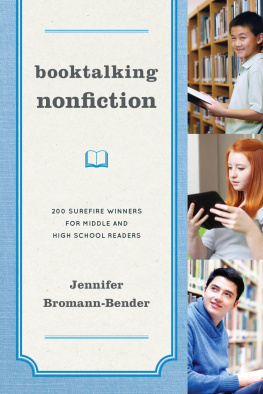
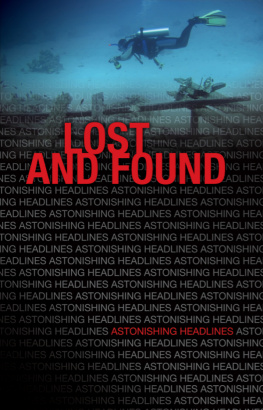
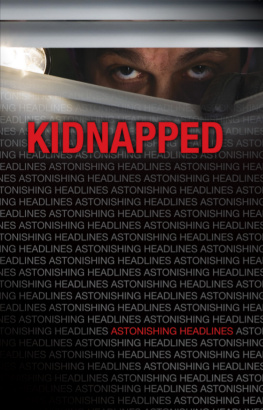
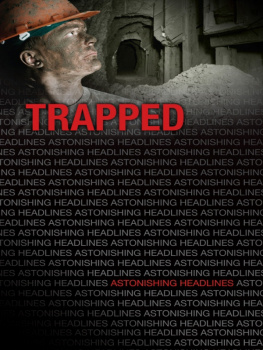
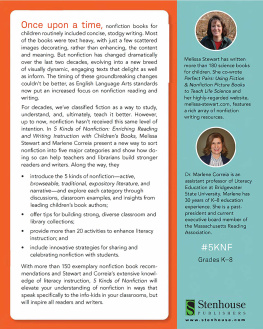
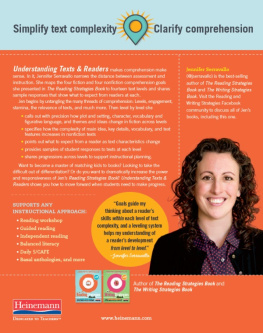
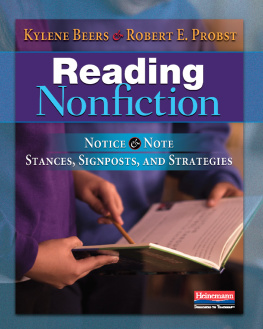
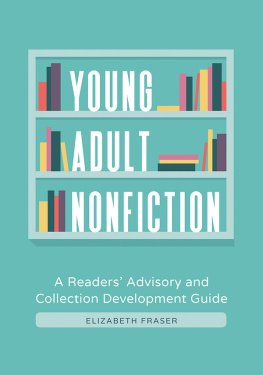

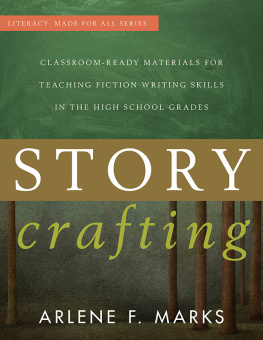

 TMThe paper used in this publication meets the minimum requirements of American National Standard for Information Sciences Permanence of Paper for Printed Library Materials, ANSI/NISO Z39.48-1992.
TMThe paper used in this publication meets the minimum requirements of American National Standard for Information Sciences Permanence of Paper for Printed Library Materials, ANSI/NISO Z39.48-1992.